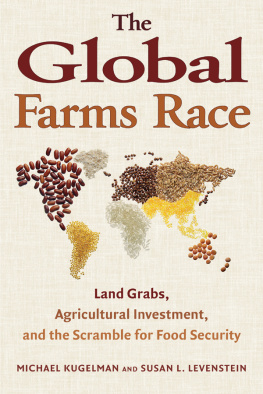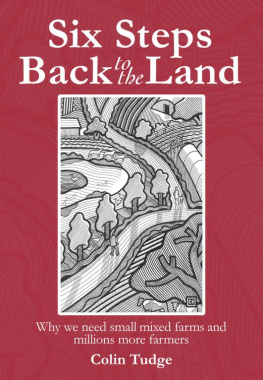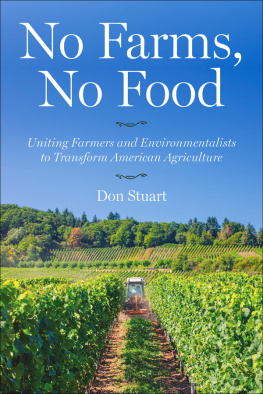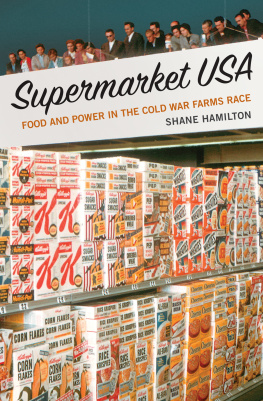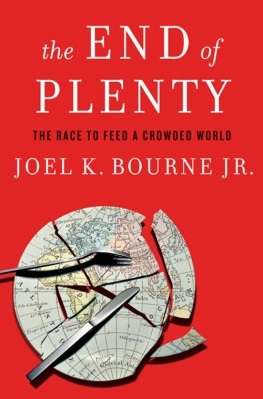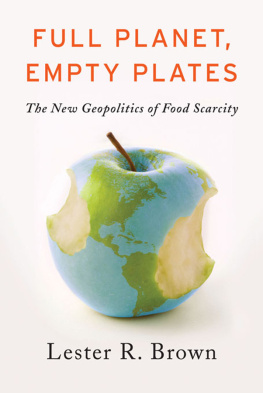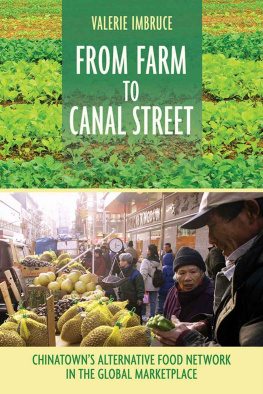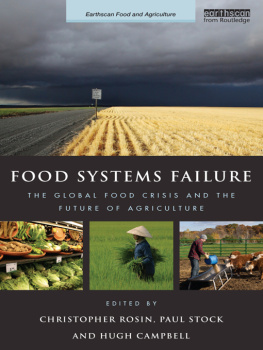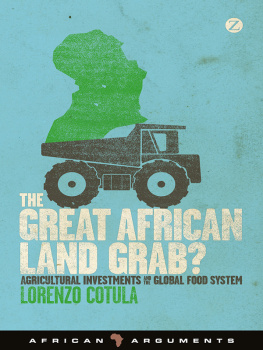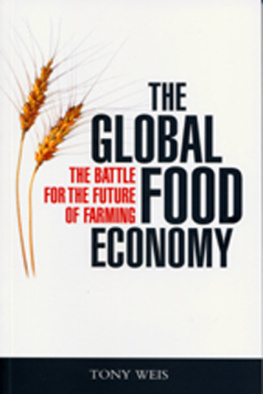About Island Press
Since 1984, the nonprofit Island Press has been stimulating, shaping, and communicating the ideas that are essential for solving environment problems worldwide. With more than 800 titles in print and some 40 new releases each year, we are the nations leading publisher on environmental issues. We identify innovative thinkers and emerging trends in the environmental field. We work with world-renowned experts and authors to develop cross-disciplinary solutions to environmental challenges.
Island Press designs and implements coordinated book publication campaigns in order to communicate our critical messages in print, in person, and online using the latest technologies, programs, and the media. Our goal: to reach targeted audiencesscientists, policymakers, environmental advocates, the media, and concerned citizenswho can and will take action to protect the plants and animals that enrich our world, the ecosystems we need to survive, the water we drink, and the air we breathe.
Island Press gratefully acknowledges the support of its work by the Agua Fund, Inc., Annenberg Foundation, The Christensen Fund, The Nathan Cummings Foundation, The Geraldine R. Dodge Foundation, Doris Duke Charitable Foundation, The Educational Foundation of America, Betsy and Jesse Fink Foundation, The William and Flora Hewlett Foundation, The Kendeda Fund, The Andrew W. Mellon Foundation, The Curtis and Edith Munson Foundation, Oak Foundation, The Overbook Foundation, the David and Lucile Packard Foundation, The Summit Fund of Washington, Trust for Architectural Easements, Wallace Global Fund, The Winslow Foundation, and other generous donors.
The opinions expressed in this book are those of the author(s) and do not necessarily reflect the views of our donors.
THE GLOBAL FARMS RACE
The Global Farms Race
Land Grabs, Agricultural Investment,
and the Scramble for Food Security
Edited by
Michael Kugelman
Susan L. Levenstein

Copyright 2013 Michael Kugelman and Susan L. Levenstein
All rights reserved under International and Pan-American Copyright Conventions. No part of this book may be reproduced in any form or by any means without permission in writing from the publisher: Island Press, 1718 Connecticut Ave., NW, Suite 300 Washington, DC 20009.
ISLAND PRESS is a trademark of the Center for Resource Economics.
Library of Congress Cataloging-in-Publication Data
The global farms race : land grabs, agricultural investment, and the scramble for food security / edited by Michael Kugelman, Susan L. Levenstein; with contributions from Carl Atkin... [et al.].
p. cm.
Includes bibliographical references and index.
ISBN 978-1-61091-219-8 (ebook)
ISBN 978-1-61091-186-3 (cloth : acid-free paper)ISBN 1-61091-186-5 (cloth : acid-free paper)ISBN 978-1-61091-187-0 (paper : acid-free paper)ISBN 1-61091-187-3 (paper : acid-free paper) 1. FarmsForeign ownership. 2. FarmsDeveloping countriesForeign ownership. 3. Agricultural industriesForeign ownership. 4. Agricultural industriesDeveloping countriesForeign ownership. 5. Investments, ForeignDeveloping countries. 6. AgricultureCapital investments. 7. Food securityPolitical aspects. 8. Food securityEnvironmental aspects. 9. Food securitySocial aspects. I. Kugelman, Michael. II. Levenstein, Susan L., 1975III. Atkin, Carl.
HD9000.6.G52 2013
338.1dc23
2012011492
Printed on recycled, acid-free paper 
Manufactured in the United States of America
10 9 8 7 6 5 4 3 2 1
Keywords: farmland acquisitions, food crisis, agricultural investment, food imports and exports, economic development, crop shortages, grain costs, land-poor countries, Daewoo
ACKNOWLEDGMENTS
This book would not have been possible without the assistance and support of a number of key places and people. First, we thank Island Press for taking this project on, and especially Emily Davis for guiding us through the publication process from start to finish. Emily is one of those rare people who have a workable solution for every possible problem, and we are grateful for all her assistance. Also of great help for their ideas and suggestions were Elisio Contini of the Brazilian Agricultural Research Corporation; Oliver Coomes of McGill University; Derek Hall of Wilfrid Laurier University in Canada; Chris Huggins of the Land Conflict Research firm in Canada; Jackie Klopp of Columbia University; and Peter Messerli of the University of Bern. Finally, we thank Laura Jervis for her editorial assistance.
This book traces its origins to a conference hosted by the Woodrow Wilson International Center for Scholars in May 2009 entitled Land Grab: The Race for the Worlds Farmland. A post-conference Wilson Center report, comprising early versions of some of the contributions in this volume, followed later that year. For this reason, we are indebted to a number of past and present Wilson Center staff members. They include, above all, Robert M. Hathaway of the Centers Asia Program. His support and counsel cannot be overstated. We also recognize Mame-Khady Diouf and Justine Lindemann of the Centers Africa Program; Geoff Dabelko and Kayly Ober of the Environmental Change and Security Program; Lauren Herzer of the Comparative Urban Studies Project; Paulo Sotero of the Brazil Institute; Jos Ral Perales of the Latin American Program; and Jacqueline Nader of the Program on America and the Global Economy.
Back in 2008, when this project was in its very early conceptual stages, foreign land investments were not receiving nearly the amount of attention or coverage that they are now. The editors are deeply grateful to a number of experts who not only helped explain the topic and suggested angles to pursue, but also strongly encouraged that the May 2009 conference and report be undertaken. These people include Javier Blas of the Financial Times; Alex Evans of New York University; Zoe Goodman, formerly of the 3D organization; Gawain Kripke of Oxfam America; author Paul Roberts; and Carin Smaller of the International Institute for Sustainable Development.
Others deserving mention include Suraya Afiff of the KARSA Institute in Indonesia; Jun Borras of Saint Marys University in Canada; John Lamb of the World Bank; Carola Lentz of Harvard; Peter Lewis of Johns Hopkins/SAIS; Henry Machina of the Zambia Land Alliance; Zachary Makanya of the Participatory Ecological Land Use Management (PELUM) organization in Kenya; Will Masters of Purdue; Kidane Mengisteab of Penn State; Bill Moseley of Macalester College; Roz Naylor and Walter Falcon of Stanford; Jesse Ribot of the University of Illinois; Jonathan Rigg of Durham University in the United Kingdom; Beatriz del Rosario of the International Federation of Agricultural Producers; Ibrahim Saif and Farah Shoucair of the Carnegie Middle East Center; Jean-Francois Seznec of Georgetown; Michael Taylor of the International Land Coalition; and Peter Vandergeest of York College in Canada.
The editors must also express their tremendous appreciation to this volumes 15 chapter contributors, some of whom have been with us since they served as speakers at the 2009 conference. They are all busy people, yet they generously took the time to contribute to this collection. We thank them for their time, efforts, and good cheereven when deluged with our questions and requests.
Finally, we thank our patient and supportive families for tolerating our frequent disappearing acts during the most intense periods of the editing and production process. This book is dedicated to two very special members of our respective families, Adam Kugelman and Henry Levenstein. If large-scale farmland acquisitions are still occurring many decades from now, these two little boys will be in a better position than we will to take stock of the effects, whether benign or malign.
Next page
